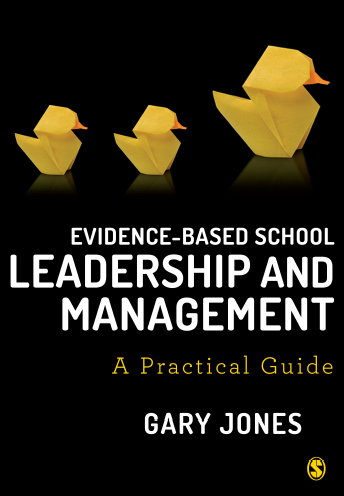This is the second in a series of posts that looks at the issue of ethics within the context of teacher-led and school-led research. In the first post I am examined senior leaders’ lack of awareness of issues pertaining to research ethics. In this post, I will pose some questions about ethics and teacher/school led research and provide some tentative answers. So here goes.
1. Do I need to take into account ethical issues when conducting teacher/school led research?
Yes – as a professional educator you have an obligation to conduct research in an ethical manner, Robinson and Lai (2005).
2. Where can I gain guidance on ethical issues?
The best places to start are BERA’s Ethical Guidelines for Educational Research - BERA (2018) alongside the code of conduct of your professional association
3. Do I need to get ethical approval to conduct teacher/school research?
Maybe – if the research is being conducted as part of a formal programme of study or in partnership with a higher education institutions, then in all likelihood you will require ethical approval from the relevant ‘ethics committee.’ If not, it depends upon the activity you are undertaking and the procedures within your school.
4. If I – or the school - are undertaking research outside of the auspices of a HEI are there occasions where it would make sense for the research to be subject to some appropriate form of internal approval process?
Yes – the following activities are likely to be deemed ‘research’ and should have some form of approval
· the testing or development of hypotheses
· comparing interventions
· collecting quantitative and qualitative data over and above data generally collected within the school - though this could include normally collected data
· significant change to teaching approaches/support strategies - which are in addition to what is normally provided for pupils.
· generalising findings beyond the setting of the school
5. Are there any activities which are not going to require ethical approval?
· the evaluation of existing provision
· performance reviews, and testing within normal educational requirements if there is no research question involved (used exclusively for assessment, management or improvement purposes).
· inquiries based on the review of previously published research literature
· research based solely on the researchers personal reflections and self-observation
6. Can I rely on ‘equipoise’ and ‘informed consent’ to provide sufficient ethical protection for participants?
No - other matters to be considered include: transparency; the right to withdraw; potential harm from participation in the research; privacy and data storage
7. Is the quality of the research undertaken an ethical issue?
Yes - Gorard (2002). No matter what ethical guidelines are put in place – if the research is poor quality – participants are being disturbed, schools are wasting their money, and teacher researchers will be wasting their time. What’s more given the ease with which research findings can these days can be disseminated via social media or the plethora of conferences the research may lead to teachers and schools being misled, Coe (2008)
And finally
Ethical concerns are not limited to research but should also form an integral part of discussions school improvement, quality improvement and evidence-based practice. If you are only discussing ethical issues in the context of teacher or school-led research, then hopefully this blog post will give you pause for thought.
References
BERA. (2018). Ethical Guidelines for Educational Research (4th Edition). London. British Educational Research Association
Coe, R. (2008). Reflections on Ethics in Educational Research (Draft). University of Durham.
Gorard, S. (2002). Ethics and Equity: Pursuing the Perspective of Non- Participants. Social Research Update, 39 (Winter 2002). University of Surrey Social Science Research Update - Univeristy of Surrey. 39 Winter 2002.
McNiff, J. (2017). Action Research: All You Need to Know. London. SAGE
Robinson, V. and Lai, M. (2005). Practitioner Research for Educators: A Guide to Improving Classrooms and Schools. Thousand Oaks, CA. Corwin Press.
